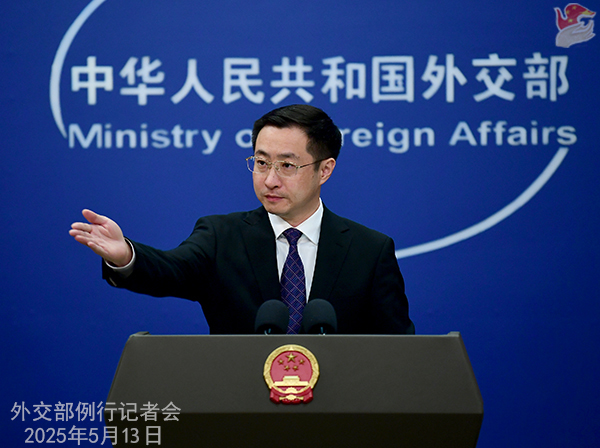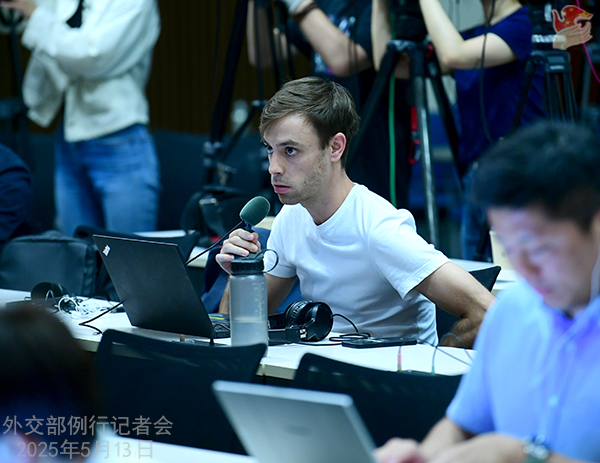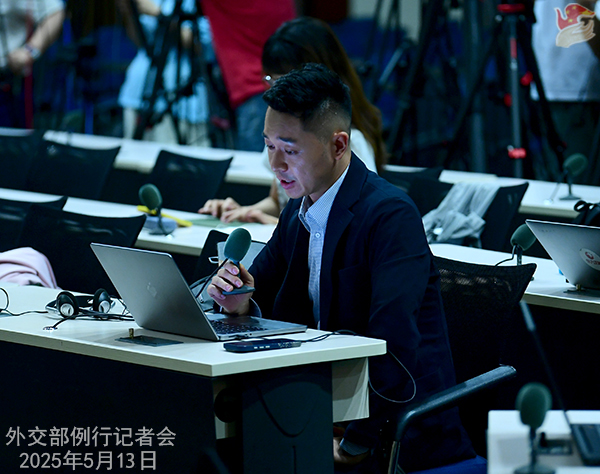
People’s Republic of China



CCTV: It was reported that in response to the content in the China-Russia joint statement that urges the Japanese government to draw lessons from history, stay prudent on historical issues, and make a clean break with militarism, Japan’s Chief Cabinet Secretary Yoshimasa Hayashi said at a press conference the other day that Japan has upheld freedom, democracy and rule of law and contributed to the prosperity of Asia and the world since World War II, and it will not stop pursuing peaceful development in the future. The allegation made by China and Russia that Japan didn’t break away from militarism is not true. Hayashi said that China’s military activities are a concern of the international community, and Russia’s “invasion” into Ukraine is outrageous and can undermine international order. Japan strongly hopes that China and Russia will stop criticizing other countries. What is China’s comment?
Lin Jian: China noted the reports. During World War II, Japanese militarists’ war of aggression and innumerable crimes inflicted immense suffering on the people of China and elsewhere across Asia. To view and treat history correctly is an important prerequisite for Japan’s post-war return to the international community, the political foundation for Japan’s ties with neighboring countries, and more importantly, a key measure for Japan’s commitment to peaceful development. Yet even till this day, there are still things being done in Japan aimed at whitewashing its war of aggression and colonial rule. Japan remains evasive on the humanitarian atrocity of “comfort women” that it committed during the war. Some Japanese politicians have kept visiting and paying respect to Yasukuni Shrine, where Class-A war criminals are honored. These moves have caused strong condemnation and grave concern from neighboring countries. Instead of deeply reflecting on its crime of aggression and responsibilities, Japan accuses China and Russia for justly defending history and striving for peace. This once again reveals Japan’s problematic stance on historical issues. China firmly opposes this.
This year marks the 80th anniversary of the victory of the Chinese People’s War of Resistance Against Japanese Aggression and the World Anti-Fascist War. We urge Japan to take a hard look at its responsibility for the war crimes, draw lessons from history, make a clean break with any move that seeks to whitewash the history of aggression, which is the responsible thing to do for history, people and the future, follow the path of peaceful development, and earn the trust of its Asian neighbors and the rest of the world through Japan’s actions.

AFP: Can you give us any details on the next stages of the trade talks with the U.S.? What would they involve and discuss? Specifically, can you tell us what talks are planned on the fentanyl issue given that the 20 percent tariffs linked to that remain in place?
Lin Jian: China’s competent authorities have released information on the China-U.S. high-level meeting on economic and trade affairs.
As for the fentanyl issue, China has made it clear more than once that fentanyl is the U.S.’s problem, not China’s. It’s the U.S.’s responsibility to solve the issue. Despite the goodwill China has shown, the U.S. wrongly slapped tariffs on Chinese imports by citing the issue of fentanyl. The move has dealt a heavy blow to China-U.S. dialogue and cooperation on counternarcotics, and gravely hurt China’s interests. If the U.S. truly wants to cooperate with China, it should stop vilifying and shifting the blame on China, and seek dialogue with China based on equality, respect and mutual benefit.
Reuters: About the China-CELAC summit which opened this morning. Our question is, why are the Haiti and Saint Lucia flags at the summit, given both countries have ties with Taiwan?
Lin Jian: The China-CELAC Forum is an important platform for mutually beneficial cooperation between China and Latin American and Caribbean States. China always welcomes and supports CELAC member states in participating in activities within the framework of the Forum.
Beijing Youth Daily: We noted that the second Workshop on AI Capacity Building opened in Beijing. Could you share more information on that?
Lin Jian: On May 12, the second Workshop on AI Capacity Building opened in Beijing, with participants from nearly 40 countries and international organizations. This Workshop is a concrete action to implement the Global AI Governance Initiative, the UN Resolution on Enhancing International Cooperation in Capacity-Building of Artificial Intelligence, and the AI Capacity-Building Action Plan for Good and for All.
President Xi Jinping emphasized that AI can serve as a global public good to benefit humanity. China advocates fair and inclusive development of AI, and acts as an active champion, practitioner and pioneer of international cooperation in AI capacity-building. China believes that digital dividends should not become digital hegemony, and intelligent revolution should not expand digital divide. We will continue to uphold the philosophy of extensive consultation and joint contribution for shared benefit, enhance communication and cooperation with all parties, stay committed to providing public goods for the international community, share AI dividends with fellow developing countries, and promote AI to better serve global development.



